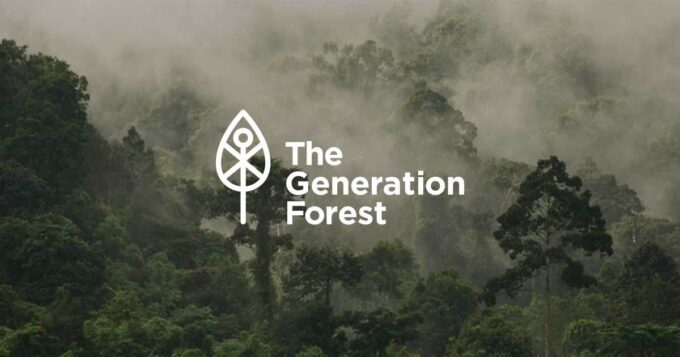
Digital sustainability: it pays to be a leader, not a laggard
Companies that excel in both digital and sustainable transformation attract a stock market premium, according to research. So, how do you tap into that value? ...

by Karl Schmedders, Jerome Cochet, Ricarda Röller, Angelika Schmid, Philipp Müller Published 16 May 2023 in Sustainability • 6 min read
Has the voluntary carbon-credit market been fatally discredited? It might seem so.
An investigation in mid-January by German weekly Die Zeit, British newspaper The Guardian, and non-profit, investigative-journalism organization SourceMaterial, found that more than 90% of rainforest carbon offsets from the world’s leading certifier of carbon credits, Washington DC-based Verra, were not worth the paper they were printed on. They were “phantom credits” and did not contribute to a sustainable future.
A lack of strong central regulators who can deliver the necessary level of control, as well as a deficit in transparency, has also conspired to sideline the market. But just because the market has not worked as transparently or efficiently as it could have done, there is no reason to reject the idea of it altogether.
Entirely separate from mandatory emissions-trading systems, such as the European Union’s Emissions Trading System (ETS), the voluntary carbon-credit market refers to markets where individuals, companies and governments voluntarily purchase carbon credits to offset their carbon emissions.
When discussing the future of carbon compensation, the first question to ask is about lessons learned. Was the idea to compensate carbon wrong from the beginning? If not, why did the current system fail to exert the necessary quality control? And what needs to happen to restore carbon compensation, obligatory or voluntary, as a legitimate means of creating financial incentives to invest in carbon reduction?
The recent Intergovernmental Panel on Climate Change (IPCC) report highlighted once again that we are not on track to limiting global warming to 1.5°C or even 2°C. To meet the Paris Agreement climate target, we need to cut almost 50% of the 2019 global greenhouse gas (GHG) emissions by 2030. The voluntary carbon market can help us get there. Nature-based, carbon–credit projects, such as forest conservation and reforestation, can contribute more than 30% to the required net–emission reductions by 2030 alone.
By compensating for unavoidable emissions with carbon credits, companies implicitly define an internal price on carbon emissions, which incentivizes them to reduce their GHG emissions.
Carbon credits can provide financial support for renewable energy, energy efficiency, reforestation projects, and many other project types that avoid and remove emissions. They spur innovation and help to finance new solutions to reduce emissions and promote sustainable development. More to the point, they strongly contribute to many of the United Nations’ Sustainable Development Goals (SDGs), such as No Poverty, Zero Hunger and Life on Land.
Almost 2000 companies have already committed to net–zero targets, according to the ScienceBased Targets initiative, the most common standard for companies to develop emission–reduction targets. Experts estimate we will only be able to reduce 90-95% of our emissions; any residual emissions must be removed, through nature-based or technology-based systems, for example. On the way to net zero, companies can choose to compensate emissions they cannot reduce yet with carbon credits.
Climate activist Greta Thunberg has called offsetting a “dangerous climate lie” and “a free pass to keep polluting”. Critics argue that they allow organizations and individuals to continue to emit greenhouse gases without actually reducing their emissions. Former US Vice President and climate advocate Al Gore has also warned against companies relying “to an absurd degree” on offsets.
Carbon leakage, lack of stringent standards, additionality, permanence, fraud, and corruption are key quality challenges. Leakage occurs when emission reductions in one area unintentionally increase emissions elsewhere. The absence of universally accepted criteria for evaluating projects can lead to varying quality and overestimated emission reductions. Additionality. the requirement that the emission reduction would not have occurred without the project, is crucial, but ensuring it can be challenging, sometimes resulting in low-quality offsets. Carbon–offset projects should provide permanent emission reductions; however, risks like deforestation and forest fires may compromise permanence. Finally, fraudulent or corrupt practices may exaggerate emission reductions or misrepresent a project’s true impact.
A concern Professor Karl Schmedders hears regularly from IMD participants is that there is a risk emission reductions claimed through carbon credits may be double-counted. In other words, the same emission reductions may be claimed by multiple organizations or countries.
The problem isn’t compensating emissions with carbon credits; rather, it is the way this has been carried out in the past. To restore corporate and public credibility, companies have to set clear reduction targets and not just buy their way out of reducing emissions.
The quality of carbon-credit projects should be properly assured. They must be long-term, work on a scientific basis, and offer benefits beyond carbon reduction for biodiversity and local communities.
A good example is Hamburg-based The Generation Forest, a project to reforest a variety of native species on degraded land in Panama.
This social enterprise, set up with a partner who has a 30-year track record in reforesting the country, has built a long-lasting relationship with the indigenous population, creating jobs to maintain the forest, as well as investing in education and infrastructure.
There must be transparency from all market participants: from companies on the actions taken; from suppliers of carbon credits; and from intermediaries on the project’s impact, revenue distribution and risk. Data and AI can serve as powerful tools for increasing transparency. By employing advanced algorithms to analyze and validate the legitimacy of carbon-credit projects, stakeholders can gain a clearer, more holistic understanding of each project’s environmental impact.

As Kathrin Schwan, Managing Director of Accenture Data&AI Network, stated: “AI is the key to unlocking a transparent carbon market, fostering trust and informed decision-making among participants”. Through continuous monitoring and real-time insights, data and AI help ensure that the market operates with integrity, ultimately promoting the efficient allocation of investments.
Companies like Berlin-based startup GoodCarbon, which assesses projects for quality and uses blockchain technology to address issues such as double-counting, make sure that there is clarity and visibility within the market for everyone. The startup directly connects companies with carbon-credit project owners on a digital platform, taking the middlmen out of the market, thereby increasing the money flowing to local communities on the ground. Blockchain technology allows the tokenization of nature-based, carbon-credit projects to enable the easy financing of such projects, while providing transparency on the project status and quality. To ensure the projects achieve the impact that they claim, GoodCarbon has developed a transparent, quality-assessment framework, which analyzes every project along three key dimensions: impact, risk, and integrity.
A rejection of carbon credits altogether risks throwing the baby out with the bathwater. It is a good mechanism, if implemented in the right way, and will help deliver on targets for greenhouse gas reductions.

Professor of Finance at IMD
Karl Schmedders is Professor of Finance at IMD. In his research, he applies numerical solution techniques to complex economic and financial models, shedding light on relevant market issues and industry problems. He is also Director of IMD’s new online certification course for structured investment products in partnership with Swiss company Leonteq, teaches in the Advanced Management Concepts (AMC) and Executive MBA programs, and is an advisor on International Consulting Projects in the MBA program.

Co-Founder & Managing Director at goodcarbon
With a strong business and marketing background, Jerome previously worked for the likes of McKinsey & Co, and Zalando, where he founded Zalando Marketing Services. As an avid nature and outdoors lover, Jerome always sought a way to combine this passion with his professional life and do his part to fight climate change, support biodiversity, and the local communities who are impacted.

Director Business Development at goodcarbon
Previously a senior consultant at Kearney, Ricarda is now in charge of goodcarbon‘s sales approach, developing financial products, defining the platform requirements, and managing our team. Inspired by a trip through the Amazon, Ricarda firmly believes every single one of us has a responsibility for our planet and enjoys leading our team in having a real climate, biodiversity, and community impact.

Data Scientist and head of data-driven sustainability at Accenture
Angelika Schmid is a Data Scientist and leads the data-driven sustainability group at Accenture consulting. She has dedicated her professional life to creating value and insights from data ever since she started her PhD in Applied Statistics in 2013. She leads strategic AI and ML projects in the Financial Sector and is currently supporting helping companies to set up ESG measurement and thereby making progress with regards to sustainability tangible and plannable.

Data science consultant at Accenture
Philipp Müller is data science consultant at Accenture. He completed a PhD studies at the Chair of Quantitative Business Administration, University of Zurich. His research interests include Computational Economics, Econometrics, and machine learning applications in economics and finance.

17 July 2024 • by Michael R. Wade, Evangelos Syrigos in Sustainability
Companies that excel in both digital and sustainable transformation attract a stock market premium, according to research. So, how do you tap into that value? ...

11 July 2024 • by Stéphane J. G. Girod in Sustainability
A series of watershed events forced CHANEL out of its comfort zone, culminating in the launch of CHANEL Mission 1.5°. With this new strategy, the luxury fashion house embarked on a journey...

5 July 2024 • by Avni Shah in Sustainability
Creative industries have a key role to play in creating positive social change. Here are six key insights to help them achieve their goals. ...

3 July 2024 • by Richard Baldwin, Salvatore Cantale in Sustainability
The EU Corporate Sustainability Reporting Directive (CSRD) will impose comprehensive and standardized sustainability reporting responsibilities on firms, adding unprecedented complexity to mergers and acquisitions. ...
Explore first person business intelligence from top minds curated for a global executive audience